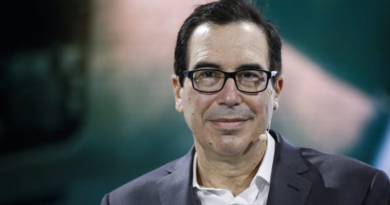How ’90s nostalgia is helping brands boost sales and get through to Gen Z: ‘The reaction to the aesthetic and graphics was wild’
In a way, the ’90s never really left us. But for fashion and beauty brands in 2024, the decade—and the women who helped define it—are undeniably back.
In March, Monica Lewinsky was revealed as the face of a campaign for clothing brand Reformation and Fran Drescher starred in fashion brand AMI Paris’s spring 2024 campaign. In the last year, Pamela Anderson has starred in campaigns for brands like Proenza Schouler, Smashbox, and Artizia, while Jenny McCarthy and Carmen Electra modeled for Skims.
Alicia Silverstone, who reprised her role from Clueless in a campaign for Rakuten in last year’s Super Bowl, was one of the celebrities included in skin-care brand Osea Malibu’s Leap Day campaign outreach last month, along with other celebs who were big in the ’90s, like Alyson Hannigan, Busy Philipps, and Drew Barrymore, Melissa Palmer, co-founder and CEO of Osea Malibu, told us. The campaign also included a temporarily ’90s-looking website and ’90s-inspired merchandise in celebration of its founding leap year, 1996.
Palmer said the Leap Day campaign was the “highest-performing campaign [Osea has] had in the history of the company” across both conversions and influencer posts. She said the positive response to the gifted merch, which included a vintage-looking sweatshirt, only demonstrated to her that the ’90s enthusiasm is real.
As more brands start capitalizing on this decade-specific trend, we looked into what’s making these throwbacks resonate.
It’s in the history
For Osea Malibu, the ’90s homage boils down to honoring its heritage and getting the message out about its 28-year history of “living the exact same truth” as a clean beauty brand, even though the term hadn’t been coined at the time of the brand’s founding, Palmer said.
Since 2016, the brand has run a Leap Day promotion where products are priced as they were in 1996, but this marked the first year it went all-in on the ’90s look. According to Palmer, “the reaction to the aesthetic and graphics was wild.”
The sweatshirt in particular was “such a strong tool visually for influencers,” she said, and has given her hope for long-term impact as people continue wearing them.
Timeless appeal
As Skims, which was founded just five years ago, has shown, a brand doesn’t have to have been born in the ’90s to embrace the decade and its stars. The brand has leaned into the aesthetics of different decades, including ’60s aprés ski, pinups like those popularized in the ’40s, and a ’90s car wash featuring McCarthy and Electra.
When Wieden+Kennedy worked with Skims on its first TV ad, which debuted on the same day as the Oscars last month, W+K Chief Creative Officer Azsa West told Marketing Brew that the agency was briefed by Skims’s creative director Kim Schraub on “the importance of timelessness as one of the key attributes to this brand.” That directive was what inspired the decision to shoot on film and use Gary Wright’s 1975 song “Dream Weaver” against futuristic outer-space visuals, West told us.
Last year, when the campaign with McCarthy and Electra was released, a Skims press release noted “the impact these women had on pop culture and their timeless appeal.”
Reshaping history
While some styles may be timeless, the framing around certain topics has certainly changed, and a throwback campaign can sometimes serve as an opportunity for a brand to shift cultural narratives.
Juliann Kane, influencer and content marketing lead at payment company Klarna and co-writer of the Saved Drafts newsletter, told us in an email that the Monica Lewinsky x Reformation team-up is an example of “public figures from the ’90s…reclaiming their power,” with Lewinsky projecting confidence and empowerment in her poses while simultaneously conveying the campaign’s message of getting out the vote.
“The campaign’s nod to ’90s suiting trends, coupled with its alignment with current events and societal issues and deep understanding of Gen Z’s pursuit of purpose, sets it apart,” Kane said.
The campaign seems to have been well-received, at least online, where many people praised Reformation’s decision to work with Lewinsky, with one poster noting that “Monica was simply born in the wrong generation.”
’90s forever
Will the cultural or brand obsession with the ’90s end? Over the last 15 years or so, the decade has been declared “back” in style, music, and other cultural trends, and for some brands, the current surge in interest around the decade could have long-lasting effects on their strategies.
For Osea Malibu, Palmer said the success of this year’s campaign has inspired the brand to look into creating a permanent merch store, as well as incorporate some of the ’90s-inspired colors it experimented with in places like retail endcaps. While a full ’90s rebrand isn’t likely, considering the brand has kept much of its look the same over the past 28 years, Palmer said it has her thinking about new aesthetic options for the brand.
“I will be shocked if this doesn’t continue to influence us over the coming years,” she said.
Additional reporting by Jasmine Sheena.
This article was initially published by Marketing Brew.




